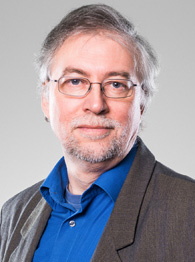Login with your zID and zPass
Any problems email servicedesk@unsw.edu.au

SoMS, BABS and GSBE Cross-Faculty Seminar Series
Abstract: Tau is a neuronal microtubule-associated protein that has been implicated in the regulation of axonal microtubule assembly. In addition, it is involved in several diseases collectively called tauopathies, during which tau redistributes from the axon towards the somatodendritic compartment where it aggregates in neurofibrillary tangles. In recent years it has become evident that tau has many interaction partners in addition to microtubules and may be involved in various signaling events, which could contribute to its role in pathology. In this presentation, tau’s function as a microtubule-associated protein and its interaction with microtubules via a recently described “kiss and hop” mechanism will be introduced. Then, evidence will be provided that tau acts as a microtubule-plasma membrane linker by binding with its aminoterminal projection domain to the Ca2+-regulated plasma membrane-interacting proteins annexin A2 and A6. Finally, evidence for a systemic role of tau will be presented based on multi-electrode array (MEA) recordings from tau knockout mice, which implicate an involvement of tau in regulating synaptic connectivity and modulating long-term potentiation (LTP). Potential implications for disease development and treatment of tauopathies will be discussed.
Bio:
1990 Dr. rer. nat. Free University of Berlin
1990-1994 Postdoctoral work in the laboratory of Dr. G. Lee at the Center for Neurologic Diseases (CND), Harvard Medical School, Boston
1994-2002 Independent Research Group Leader at the Department of Neurobiology, Interdisciplinary Center for Neuroscience (IZN), University of Heidelberg
1997 Habilitation (Cell Biology), University of Heidelberg
1997-2002 Heisenberg Fellow of the German Research Foundation (DFG)
Since 2002 Full Professor of Neurobiology (Chair) and Head of the Department of Neurobiology at the University of Osnabrück; co-opted Member of the Institute of Cognitive Science (since 2016)